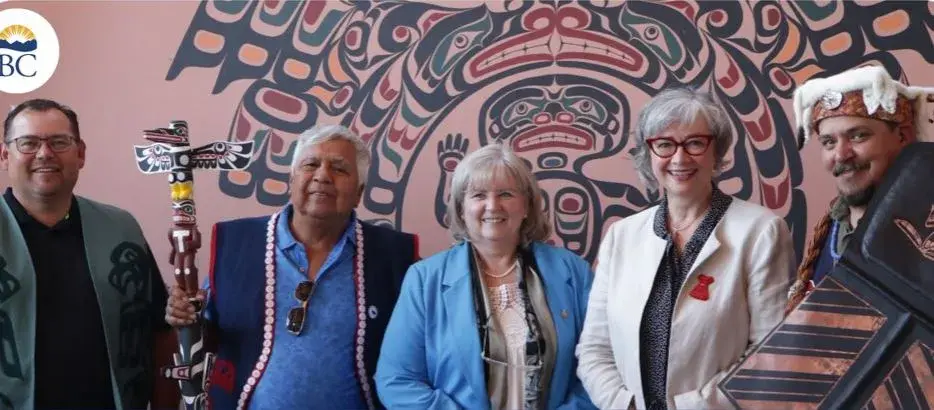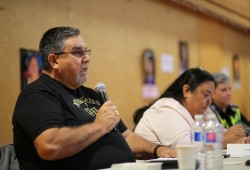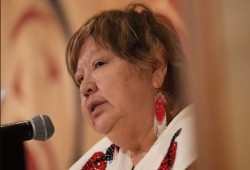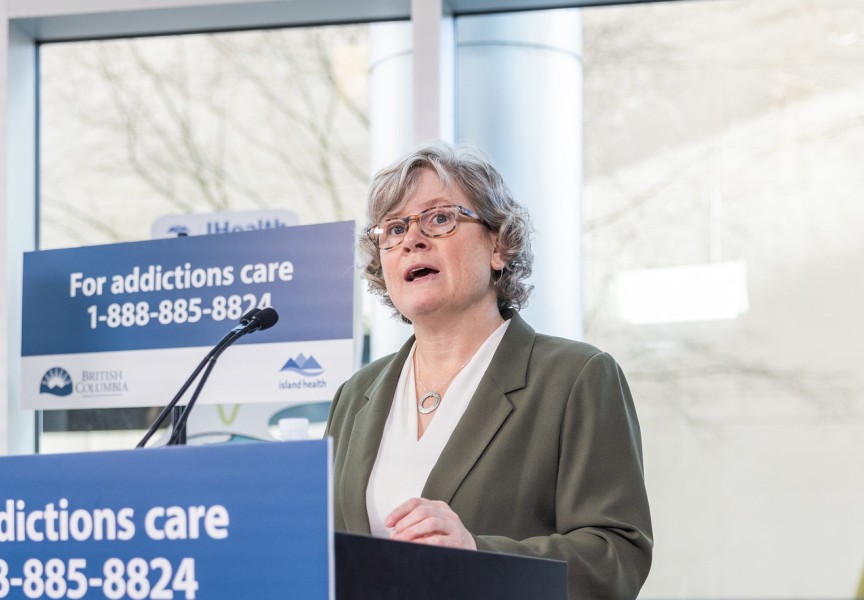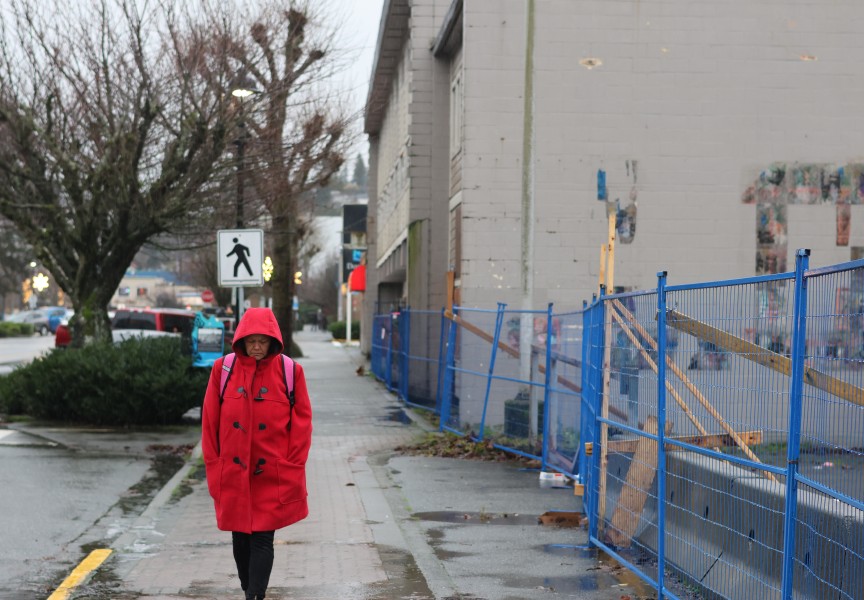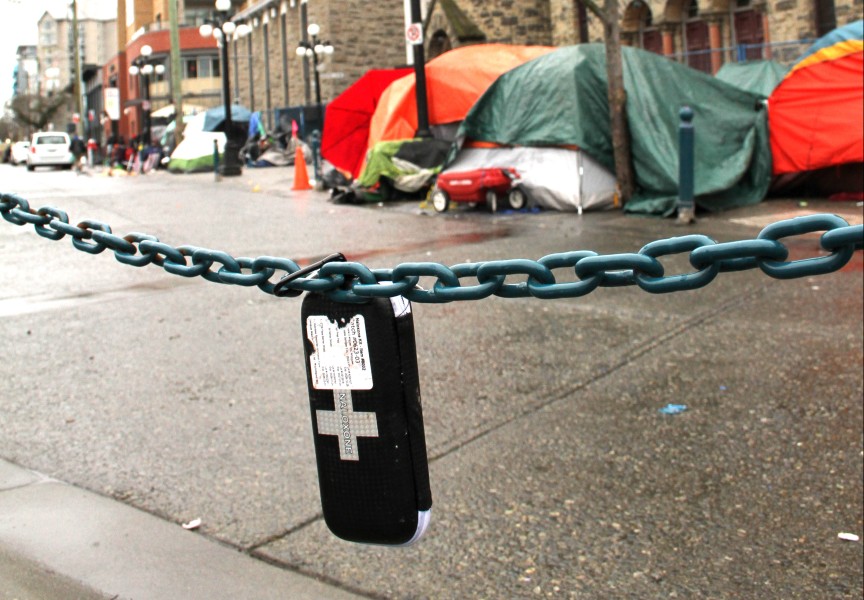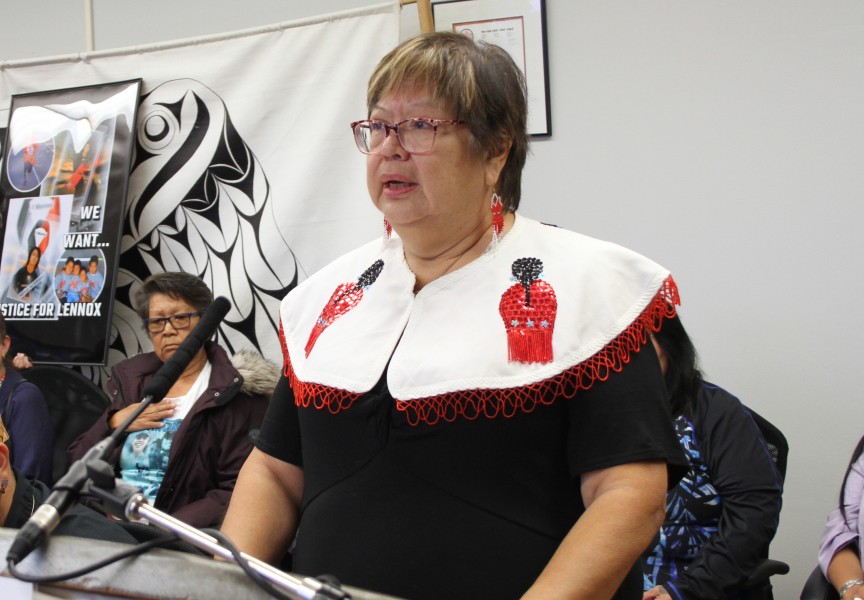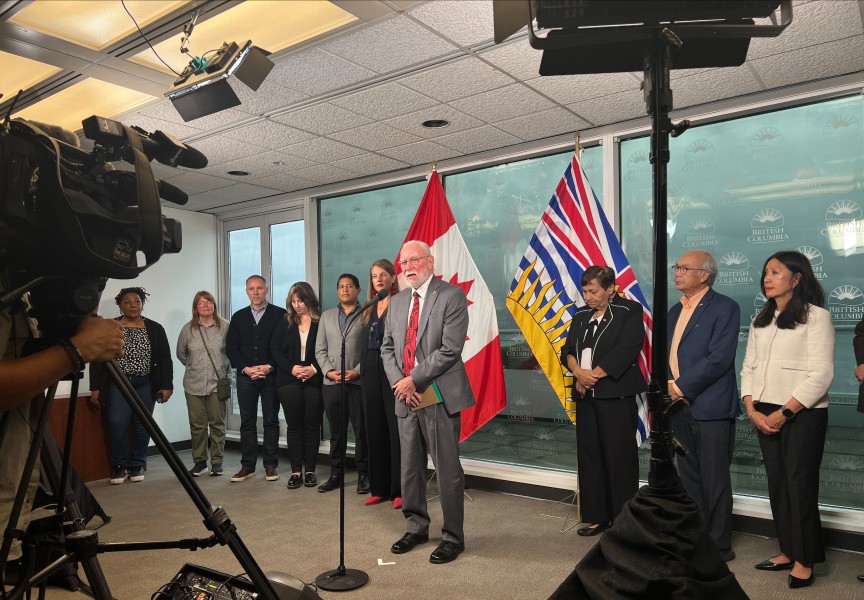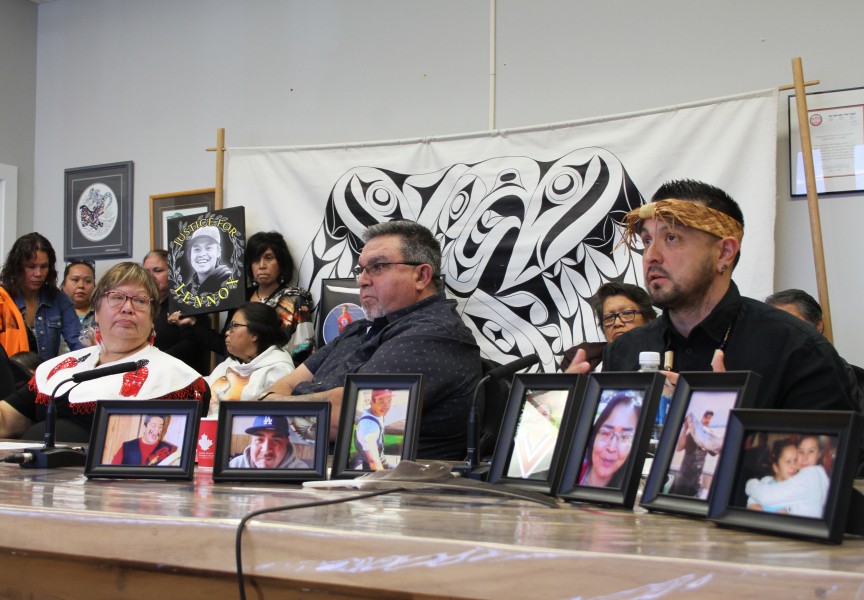Provincial officials and health representatives are praising a new Indigenous-led mental health and addictions treatment centre that will be operational by this fall on Quadra Island.
The development seeks to mitigate an overdose crisis that has escalated to claim an average of seven lives a day in British Columbia. Indigenous people are six times more likely to die from drug poisoning than the rest of B.C.’s population, according to a recent report from the Office of the Provincial Health Officer.
Though they support any new facility, some Nuu-chah-nulth officials believe that much, much more needs to be done.
It was announced in mid-July that construction has begun on the new Tsa̲kwa̲’luta̲n Healing Centre. With some provincial assistance, the We Wai Kai Nation has begun converting its previous resort into the new healing centre.
The facility, expected to open this fall, will offer both Indigenous cultural and medical healing services. Upon completion, the facility is expected to have 20 treatment beds available. And the centre will be able to offer services to as many as 40 people at a time.
“From my view, if it saves one life, that’s a game changer,” said Les Doiron, vice-president of the Nuu-chah-nulth Tribal Council, who is the former elected chief of the Yuułuʔiłʔatḥ First Nation.
Doiron, however, wonders how many Nuu-cha-nulth members who are living in their First Nation’s territory will benefit from the Quadra Island centre.
Quadra Island is located east of Vancouver Island, a considerable distance from Nuu-chah-nulth territory on the west coast.
But NTC President Judith Sayers believes some Nuu-chah-nulth members could potentially benefit from the new facility.
“There is a large Nuu-chah-nulth population in Campbell River,” Sayers said.
Quadra Island is accessible via a short ferry ride from Campbell River.
Sayers also said she is pleased to hear the new treatment centre will focus on Indigenous cultural and medical healing services.
“That’s essential to the healing, using our own traditional values,” Sayers said.
Sayers added the new facility will undoubtedly serve some needs.
“I’m sure it’s going to be in high demand,” she said. “There’s so many people that need help.”
Jennifer Whiteside, B.C.’s minister of Mental Health and Addictions, is pleased the province was able to provide some assistance for the new Quadra Island centre.
“Given that there are many pathways into addiction, we need to be there to provide just as many pathways for people to recover,” Whiteside said. “We're proud to support the We Wai Kai Nation's work to deliver cultural healing services for people struggling with addictions so that more people can find their own unique pathways to hope and to healing.”
The B.C. government is providing about $7.9 million in funding for the centre. This financial support will help cover renovation expenses as well as future operational costs.
Renovations required include roof repairs, safety and power upgrades as well as the creation of two separate wings for patient rooms.
Doiron has seen first-hand the devasting effects that addictions can have. His nephew died of an overdose a couple of years ago.
Doiron also emceed the recent Nuu-chah-nulth graduation ceremonies in Port Alberni. One of the high school graduates who attended those ceremonies died of an overdose the following day.
“It’s destroying our young generations,” Doiron said of the current drug crisis many Indigenous communities are experiencing. “More people are dying from overdoses than died during the pandemic.”
Doiron added the unfortunate situation is that many individuals who are requesting help do not have a treatment centre they can go to.
“Unless you have $50,000 to put them in a private place, there’s no place to go,” he said. “You can’t just walk in and say, ‘This is my friend and he needs help today’.”
Doiron believes that these setbacks can lead to more disastrous consequences.
“They want to get away from the people who have been assisting and enabling them (with their addictions),” he said. “But they have nowhere to go.”
While Doiron believes the construction of the Quadra Island facility will be a positive step, he added countless other facilities are required to curb the mental health and addiction epidemics.
“I think you need a centre in every city that has at least 15,000 people,” he said.
Celeta Cook, who is a director with the First Nations Health Authority, is among those supportive of the Quadra Island centre.
“We are working to ensure people in the region and provincewide have more access to mental-health and addictions services and support, and the opening of the Tsa̲kwa̲'luta̲n Healing Centre brings us a step closer toward that goal,” Cook said. “We know how important it is to meet people where they are at in their wellness journey and this new facility will help us achieve that by weaving together western and First Nations approaches to healing to provide care that is culturally safe and accessible.”
Michele Babchuk, the MLA for North Island, also speaks highly of the soon-to-be-open facility.
“This healing centre is an important addition to mental-health and addiction services in the region giving more people here access to treatment and healing,” she said. “Through We Wai Kai Nation's leadership, we're excited to see this unique and innovative project break ground.”

